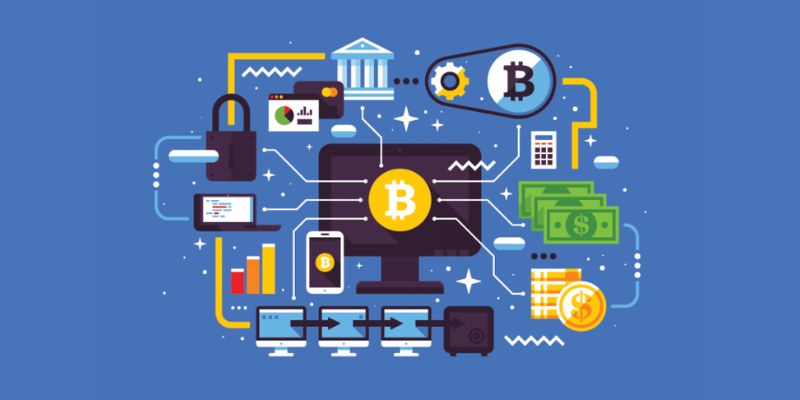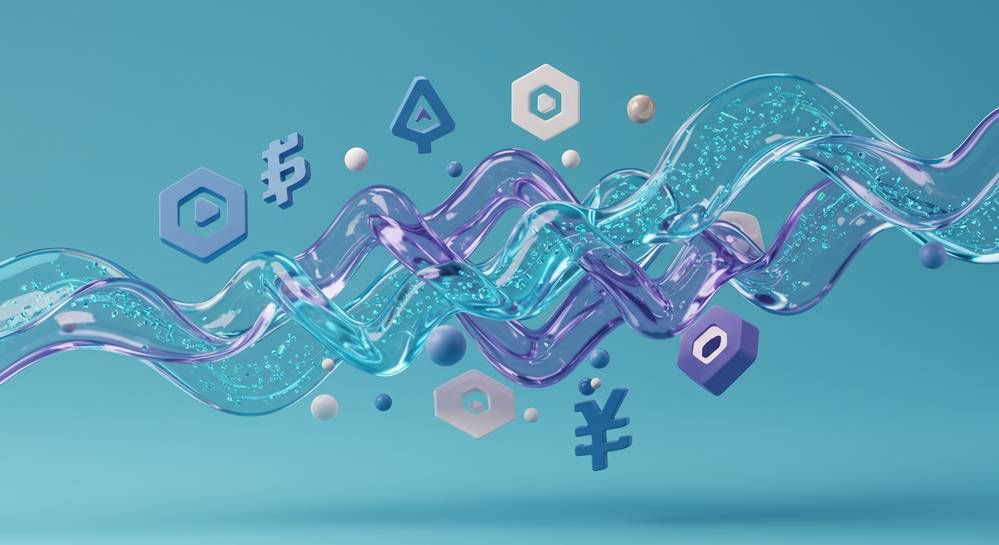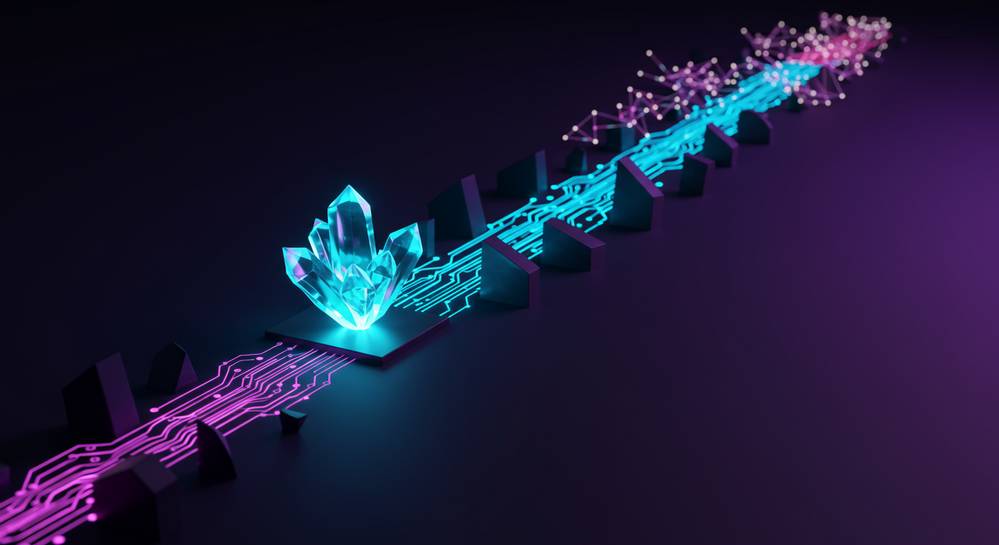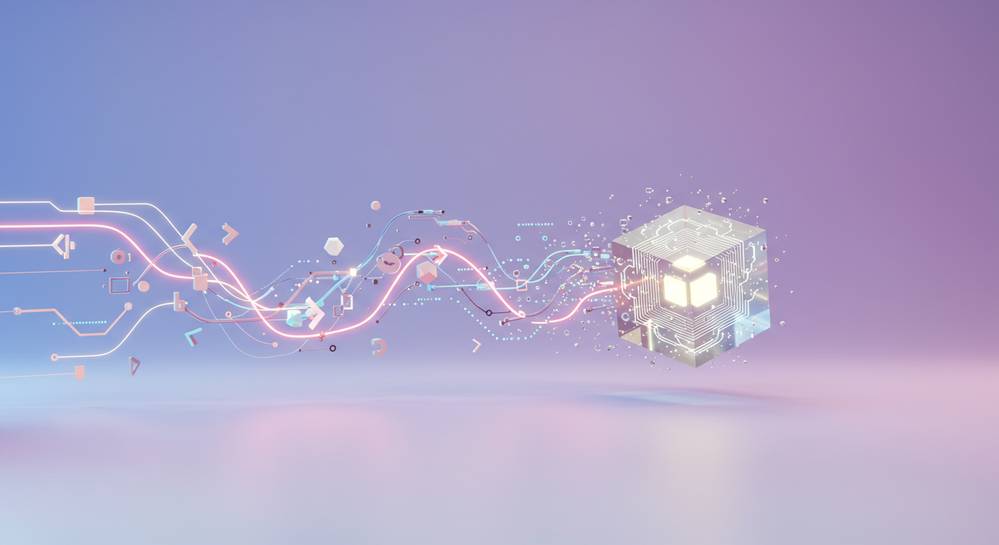Welcome to “Blockchain Breakthroughs: Unveiling the Diverse Applications Revolutionizing Industries.” You’ve likely heard the buzz about blockchain, but what are the applications of blockchain technology? Far beyond its roots in cryptocurrency, blockchain is forging new paths, transforming everything from finance to healthcare. Imagine a world where money moves across borders with ease, where patient data is tightly sealed from prying eyes, and where the very essence of ownership shifts before your eyes. We’re embarking on a journey through blockchain’s versatile roles – from smart contracts to secure supply chains – and how it redefines the status quo. Brace yourself; we’re diving headfirst into the blockchain revolution.
Blockchain in Finance: Revolutionizing Money Management
Smart Contracts Implementation: Automating Transactions with Precision
Smart contracts are like magic spells for money. They say, “If this happens, pay that person.” It’s that simple. With blockchain, we can use these smart contracts. They make deals safe, quick, and without needing a middleman. This is great for business and people who want to save time and money.
With a smart contract, you agree on the rules first. Blockchain keeps the agreement safe. If the rules are met, the blockchain does the deal all by itself. This means less waiting and no tricks or mix-ups. It’s all automatic. You can trust the deal is done right every time.
Cross-Border Payments: Facilitating Global Transactions
Sending money to another country used to be hard and slow. Not anymore! Thanks to blockchain, we can send money far and fast. The money moves on a path that everyone can agree is safe and true. And it doesn’t need to stop for anyone to check it. This makes people very happy because it’s less waiting and fewer fees.
Imagine you work far from your family and want to send them money. With blockchain, it’s as easy as sending a text. You just need a phone or computer. Your family gets the money in no time. This helps people across the world stay close, even when they’re far apart.
In finance, blockchain is a game-changer. It’s making money stuff simpler and better for all of us.

Advancing Healthcare Through Blockchain Technology
Secure Digital Identities: Protecting Patient Data
Healthcare is personal. It’s about people. So, when it comes to sensitive data, we need the iron-clad security of blockchain. What does “secure digital identities” mean? It means your health records are safe because of blockchain. With this tech, we create a shield around your information. Every patient gets a unique ID. Doctors access data only with your okay. This stops unwanted eyes from seeing your health secrets.
Healthcare Data on Blockchain: Encouraging Interoperability and Privacy
Now, let’s talk about healthcare data on the blockchain. What’s the big deal here? It’s huge! Imagine hospitals sharing info fast, with no mix-ups. Your records move seamlessly from one place to another. What’s more? You keep your privacy. No one peeks unless you give the green light. Lost papers? Misfiled info? Not anymore. Blockchain links every piece of your health story in an unbreakable chain.
Sharing data like this makes health care better for everyone. Doctors coordinate your care quickly. You get better treatments. Health costs come down as systems talk to each other better. It’s like all your health info set up a group chat, and blockchain manages it! Insurers love this too. The claims get sorted faster. Fraud almost vanishes. Blockchain turns the key to a private, smooth-running health system.
Let me rope it all together for you. Imagine this: A young mom takes her kid to a new doctor in a rush. Usually, there’s a heap of forms, waits, and worries. But with blockchain, it’s a snap. One click, the doctor sees the child’s health history. Safe, quick, and easy. That’s the power of blockchain in healthcare. It connects dots while guarding secrets fiercely. Tech like this isn’t just cool – it’s vital.
So, wrapping the stethoscope up, blockchain in healthcare is a real game-changer. It’s about keeping your most private info locked down and in good hands. Every beep of your heart, every breath in your lungs – blockchain keeps it between you and those who need to know. No stress, no mess, just care where and when it counts.
Blockchain for healthcare? Yeah, it’s just what the doctor ordered.

Streamlining Supply Chains with Decentralized Ledger Technology
Supply Chain Management Blockchain: Enhancing Visibility from Ground to Consumer
Picture this: a world where you know where your food comes from. You can see its journey from farm to your table. It sounds like a dream, right? Well, thanks to blockchain, it’s now reality. With supply chain management blockchain, every step gets logged. Producers, shippers, and stores all add their info to a shared ledger. This makes checking an item’s history as easy as pie.
But why does this matter? Let me tell you. It keeps things honest. You can spot fishy business like bad storage or expired goods. It also cuts waste. If a problem pops up, you find it fast and fix it before it gets worse. And there’s more. Remember waiting forever for a product? Blockchain speeds things up by sharing data quickly. Everyone knows where items are and what needs doing. This means your new phone or shoes get to you faster.
Now, some people ask, “How does blockchain make this happen?” Well, every time someone updates the chain, everyone sees it right away. This means no more errors from poor communication. Also, smart contracts play a big part. They’re like deals that happen without any poking or prodding. Say a shipment hits a checkpoint. The smart contract checks it off. This happens without any extra steps. It’s like magic.
Supply Chain Transparency: Combating Counterfeiting and Ensuring Authenticity
But that’s not all. We’ve got counterfeiting to beat, and blockchain is our hero. Fake goods can be hard to spot. They might look real enough, but the quality’s not there. This isn’t just about getting a knock-off bag when you wanted the real deal. It’s serious. We’re talking about medicine and car parts. Things that can put lives at risk.
Here’s where blockchain shines. It makes a shield around the truth. Every item can have a digital passport. This passport proves where it came from and that it’s legit. Now, when you buy something, you can check this passport. It gives you peace of mind that you’re getting the real deal.
You want another cool thing? Blockchain is great for the world, too. You can check if your stuff was made the right way. Do you care about the planet? Want to make sure workers get treated fair? Blockchain can show you all that info. It helps you make choices that match your values.
So, what’s the big picture? Blockchain isn’t just tech talk. It’s changing how we see and buy things. It’s making our world safer and more open. And that, my friends, is a real game-changer.

Real Estate and Asset Tokenization: Ownership Redefined
Real Estate Blockchain Transactions: Simplifying Property Exchanges
Imagine swapping a house as easy as trading cards. This idea isn’t far-off with blockchain. It lets us move property with less mess. No more piles of paper or weeks of waiting. Deals shut fast, with trust built-in. That’s real estate blockchain magic. Now, each step is open for all to see – from listing to handshake. This slashes the chance for sneaky moves. And say bye to endless fees. Blockchain cuts out middle folks. Buyers and sellers meet direct. They shake hands on deals that smart contracts seal. It’s really that simple.
Tokenization of Assets: Creating New Investment Opportunities
Now, let’s dive into tokenizing stuff. It’s like slicing a pie into pieces. But this pie can be anything of value. Art, buildings, even a share of a company, blockchain can split it up. Each piece is a token, a digital twin of real-world wealth. Ready to go places money hasn’t reached. People who never dreamed of owning pricey art or buildings now can. They just buy tokens that fit their pocket. And here’s a sweet bonus: these tokens trade around the clock. Blockchain never sleeps, so neither does your chance to leap in. Or step out. All with a tap on a screen. What about safety, you ask? Blockchain’s got it nailed. Every trade locks into place like a puzzle piece. No take-backs, no maybes. Ownership shifts clear and clean.
So, we’re seeing a big shift. No more heavy drapes hiding big deals. Blockchain lets sunshine into rooms once closed. Spaces where handshakes locked in whispers. Now, we’re all welcome to the table. Blockchain isn’t just tech talk; it’s power back in our hands. It’s a fresh chance for you and me, to join in on deals we only heard in tales. And it’s not just talk, it’s happening. Every day, more folks wake up to blockchain’s beat. They see a world where trust is just the start. And I can’t wait to see where we go next.
In this post, we’ve explored how blockchain is creating waves across industries. We looked at finance, where smart contracts streamline deals, and global payments fly across borders with ease. We saw its impact on healthcare, guarding patient data and making health records safe and easy to share. Next, we discussed supply chains, showing how blockchain brings clear views and fights fake goods. Lastly, we touched on real estate, seeing how property deals get simpler and investing in assets grows more open to all.
What stands out is blockchain’s power to shift how we deal with assets, data, and deals. Each sector benefits from added security, speed, and efficiency. As I share these insights, I’m convinced we’re just scratching the surface of what blockchain can do. It’s not just tech talk; it’s a real game-changer for how we live and do business. Let’s keep our eyes on this space; the best is surely yet to come.
Q&A :
What are the fundamental uses of blockchain technology?
Blockchain technology has revolutionized several sectors by offering a decentralized and secure ledger. The primary applications include cryptocurrency transactions, such as with Bitcoin and Ethereum, which maintain secure and transparent peer-to-peer payment systems. Apart from financial transactions, blockchain is also used in supply chain management, offering real-time tracking and unchangeable records, and in documentation, providing secure and immutable data storage solutions. Additionally, blockchain enables smart contracts, which are self-executing contracts with the terms of the agreement directly written into lines of code.
How is blockchain technology impacting financial services?
The impact of blockchain technology on financial services is profound, as it facilitates faster and more secure transactions without the need for intermediaries like banks or clearinghouses. This technology has given rise to decentralized finance (DeFi) platforms, which allow for lending, borrowing, and earning interest on cryptocurrency assets. Blockchain’s inherent transparency improves auditability and reduces the risks of fraud in financial operations, while also lowering costs associated with cross-border payments and settlements.
Can blockchain technology improve data security?
Yes, blockchain technology can significantly enhance data security by creating immutable and encrypted records of data that are resistant to unauthorized changes and hacks. Its decentralized nature eliminates single points of failure, mitigating the risk of widespread data breaches. Blockchain’s structure, where each block is connected and secured using cryptographic principles, ensures that once information is recorded, it cannot be altered without altering all subsequent blocks and without the network consensus.
In what ways is blockchain used beyond cryptocurrency?
Beyond cryptocurrency, blockchain technology is utilized in various fields to ensure integrity and reliability of information. In supply chain management, it provides a transparent record of goods movement, authenticity, and origin. It’s applied in voting systems for secure and tamper-proof election processes, as well as in healthcare for managing patient records with privacy and accuracy. Additionally, blockchain finds its application in intellectual property and royalty tracking, real estate for streamlining transactions, and in educational credentials to verify academic achievements.
What are the potential benefits of adopting blockchain in businesses?
Adopting blockchain technology in businesses offers multiple potential benefits, including increased transparency and traceability in operations, which helps build trust with consumers and partners. It allows for more secure and efficient transactions by reducing fraud and improving the verification processes. Blockchain’s decentralized nature reduces operational costs by minimizing the need for intermediaries. Moreover, smart contracts automate and enforce business agreements, which can lead to decreased administrative workload and faster deal closure. The integration of blockchain can also open new business models and revenue streams by enabling more direct peer-to-peer interactions and microtransactions.



